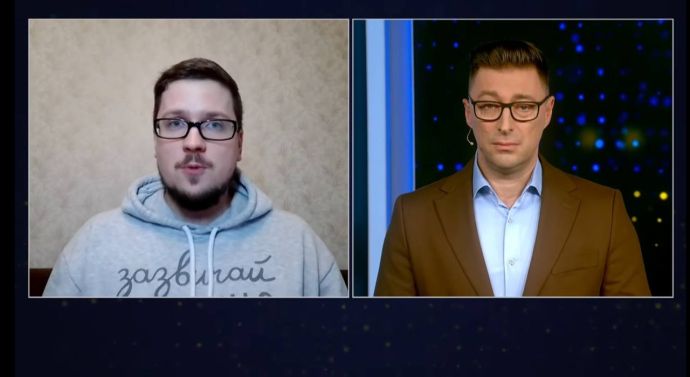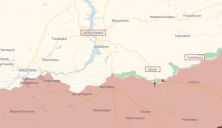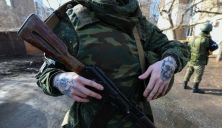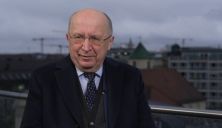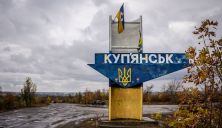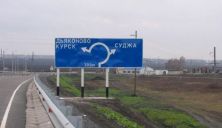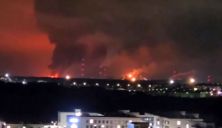The US considers Korean soldiers in Ukraine a desperation sign for putin’s regime. Is that the case?
Also Biden plans to meet Scholz, Macron and Starmer in Germany – could Ukraine be cautiously optimistic about the meeting in terms of long-rang restrictions lifted – discussed with an expert Oleksandr Kraev on UATV English.
— Korean soldiers in Ukraine… well, I myself consider it just cannon fodder being replenished by Russia, but the White House, the one in America, though disagrees with me. It says—let me quote it for you—“such a move would also indicate a new level of desperation for Russia as it continues to suffer significant casualties on the battlefield in its brutal war against Ukraine.” End of quote. And that’s said by Sean Sovit, White House National Security Council spokesperson.
Alexander, in one of your statements, you called the Korean soldiers’ presence in Ukraine a provocation from Putin’s side. How come? What did you mean by that?
— That’s definitely a provocation, and if we speak from the point of view of the international system, it’s basically a delirious idea. It’s not only a provocation towards the United States or towards Ukraine; it’s a provocation towards the whole international order.
Because previously, it was suggested that any kind of enlargement of big international conflicts—the Russian aggression against Ukraine is definitely one of the biggest since the Second World War—any enlargement of such a conflict with the direct involvement of any third party will definitely be regarded as not only an escalation but also a direct course into nuclear annihilation.
We do understand that North Korea also possesses some kind of nuclear arsenal. We also understand that Russia, from the starting point, was the second biggest nuclear power.
And that is why entangling North Korean soldiers into the fighting in Ukraine with boots on the ground, not only with industrial support or military hardware, but with soldiers definitely fighting against Ukraine, is a very dangerous and uncontrolled provocation.
And that is why, from my point of view, I think I will give a cliffhanger here: the reaction of the White House as of now is not efficient. This is definitely not enough just to say it’s a provocation.
— So you are saying that there’s going to be no reaction from the West? I mean, the West is just… nicely put.
— Well, there are two variants to address this issue. The first one is more realistic, because as of now we do see a lack of such reaction. We see, as you rightfully suggested, we see talks—we see a lot of talking but no walking. We definitely understand that the West is now curious how to react to such a situation because it was not suggested within the strategic documents and vision regarding Russian aggression.
But there’s also a positive side to the issue. As we know, Biden will meet with French, British, and German leadership during his trip to Germany. They will definitely speak about the necessity for Ukraine to launch long-range missiles into Russian territory. They will also speak about some kind of a negotiation starting point for Ukrainian accession into NATO. It is not an accession per second; it is just the starting point.
But I do believe that if we speak from the positive side of the issue, such a reaction from the West—providing Ukraine with long-range missiles and inviting Ukraine into NATO—may be a sufficient reaction to the Russian idea of enlarging conflict with North Korea.
— So, Biden and Scholz meet in Germany. Could it be for Ukraine cautiously optimistic about the meeting in terms of whatever long-range restrictions lifted, possibly NATO?
— Yes, we definitely should be optimistic, but we should definitely put it with a grain of salt. Because it is not about fast results and fast decisions.
Getting into NATO is not something that will happen in the next few weekends. It is about starting the process and getting the necessary hardware.
As of now, the Ukrainian military has a very big shortage of not only long-range missiles but also just general ammunition for artillery and even infantry regiments.
But why this optimism may be a realistic paradigm, after all? Because, first and foremost, we understand that all these decisions made nowadays, like in the midst of October, will most definitely be implemented after the American elections. Biden will not be constrained by any electoral or political dynamics; he will not be constrained by the necessity to support his party candidate. The same goes for many European leaders.
As we see, the Germans are linking their support to any kind of American decision. And that is why I am optimistic, yet realistic, that such a decision can be taken, such a political invitation for NATO can be provided for Ukraine. And, of course, if we speak about long-range missiles, then they can be provided together with the appropriate suggestions of targets.
But although it will be decided nowadays, it may only be applicable starting from the fifth of November.
— So are you saying that each missile comes with a grain of salt? Is that right?
— For sure, for sure. We do understand that any development from our Western allies, any development from our partners, will definitely be an even bigger grain of salt for Russian counterparts.
— I would love to talk about that topic, but let’s slide smoothly to another one: the Victory Plan. Have you seen it?
— Unfortunately, none of the Ukrainian experts will answer definitely and concisely on this question, because we only have seen the briefest variant which was provided for the Ukrainian public.
— Okay, the briefest version. Is Ukraine now in NATO anytime soon? Is that possible according to that Victory Plan? How real is that to you? Give me a speculation. I’m not asking for any firm answer—your feelings on that.
— It is possible, but if we speak about the membership itself, if we speak about Ukraine’s membership in NATO, it’s of course a strategic prospect for the next several years—not even months.
But if we speak about some kind of a preliminary NATO agreement, some kind of preliminary guarantees provided by NATO powers—like those provided for Finland and Sweden, for example—then we’re talking about the nearest future, in the nearest few months.
And we are definitely talking about this meeting of Biden with his European counterparts. So basically, we are on the right path, but we cannot be the ones pushing or furthering this path even faster. However, we are still going and heading in the right direction.
Read also: North Korean troops in Ukraine. Interview with Ivan Stupak

